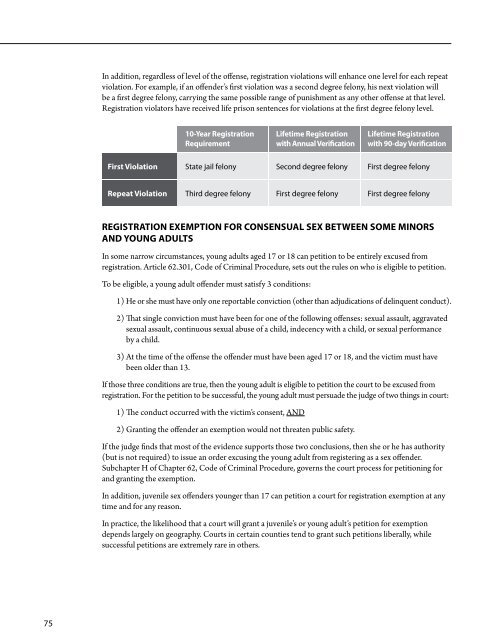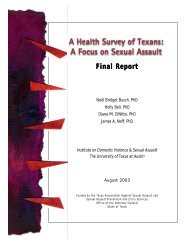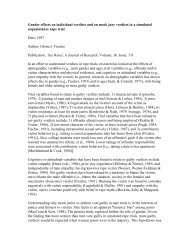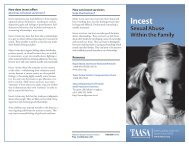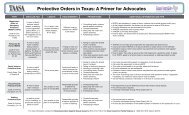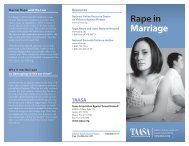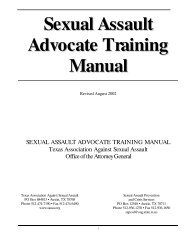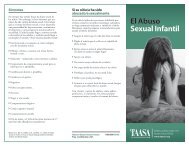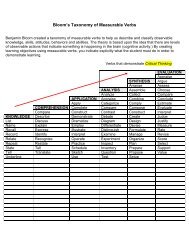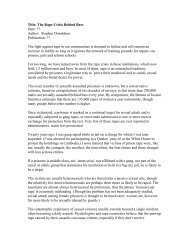Sexual aSSault LEGAL ADVOCACY MANUAL - Texas Association ...
Sexual aSSault LEGAL ADVOCACY MANUAL - Texas Association ...
Sexual aSSault LEGAL ADVOCACY MANUAL - Texas Association ...
Create successful ePaper yourself
Turn your PDF publications into a flip-book with our unique Google optimized e-Paper software.
In addition, regardless of level of the offense, registration violations will enhance one level for each repeat<br />
violation. For example, if an offender’s first violation was a second degree felony, his next violation will<br />
be a first degree felony, carrying the same possible range of punishment as any other offense at that level.<br />
Registration violators have received life prison sentences for violations at the first degree felony level.<br />
10-Year Registration<br />
Requirement<br />
Lifetime Registration<br />
with Annual Verification<br />
Lifetime Registration<br />
with 90-day Verification<br />
First Violation<br />
State jail felony<br />
Second degree felony<br />
First degree felony<br />
Repeat Violation<br />
Third degree felony<br />
First degree felony<br />
First degree felony<br />
Registration Exemption for Consensual Sex between Some Minors<br />
and Young Adults<br />
In some narrow circumstances, young adults aged 17 or 18 can petition to be entirely excused from<br />
registration. Article 62.301, Code of Criminal Procedure, sets out the rules on who is eligible to petition.<br />
To be eligible, a young adult offender must satisfy 3 conditions:<br />
1) He or she must have only one reportable conviction (other than adjudications of delinquent conduct).<br />
2) That single conviction must have been for one of the following offenses: sexual assault, aggravated<br />
sexual assault, continuous sexual abuse of a child, indecency with a child, or sexual performance<br />
by a child.<br />
3) At the time of the offense the offender must have been aged 17 or 18, and the victim must have<br />
been older than 13.<br />
If those three conditions are true, then the young adult is eligible to petition the court to be excused from<br />
registration. For the petition to be successful, the young adult must persuade the judge of two things in court:<br />
1) The conduct occurred with the victim’s consent, AND<br />
2) Granting the offender an exemption would not threaten public safety.<br />
If the judge finds that most of the evidence supports those two conclusions, then she or he has authority<br />
(but is not required) to issue an order excusing the young adult from registering as a sex offender.<br />
Subchapter H of Chapter 62, Code of Criminal Procedure, governs the court process for petitioning for<br />
and granting the exemption.<br />
In addition, juvenile sex offenders younger than 17 can petition a court for registration exemption at any<br />
time and for any reason.<br />
In practice, the likelihood that a court will grant a juvenile’s or young adult’s petition for exemption<br />
depends largely on geography. Courts in certain counties tend to grant such petitions liberally, while<br />
successful petitions are extremely rare in others.<br />
75


